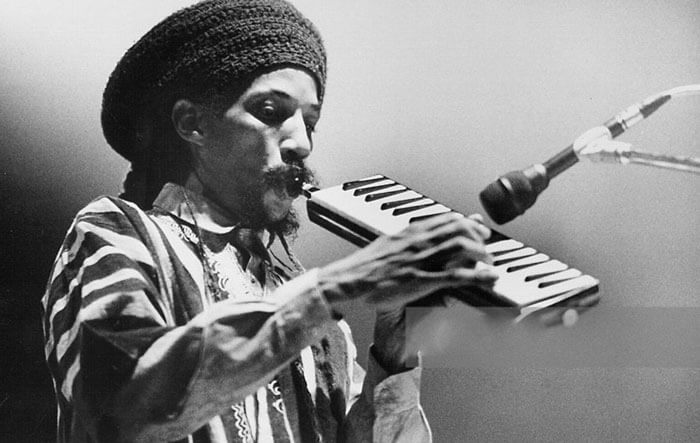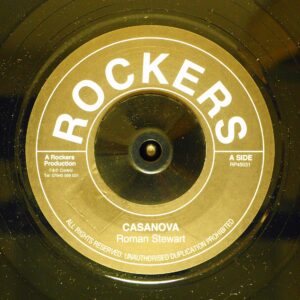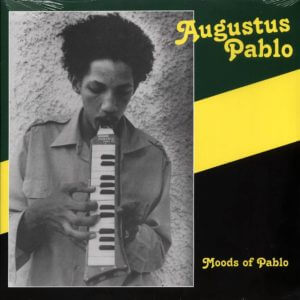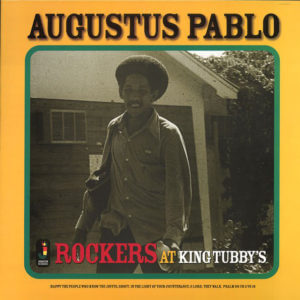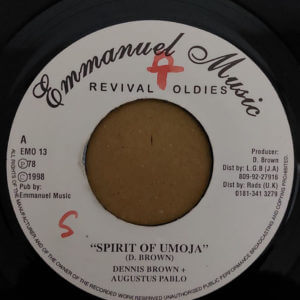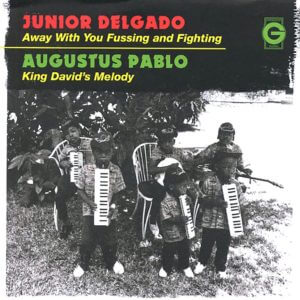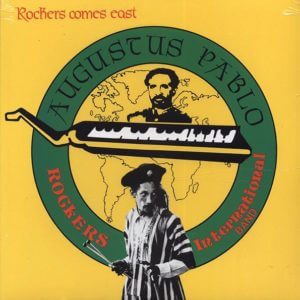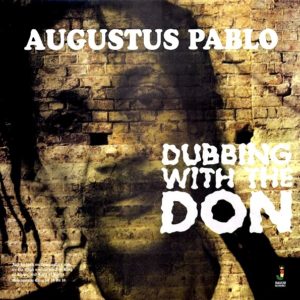Not many musicians would think of using what is associated to a child’s toy in their songs, yet Augustus Pablo was able to use the unique sound of the melodica to revolutionize Jamaican music in the 1970s. His real name was Horace Swaby, and he was born in 1954 in St. Andrew, Jamaica. In high school he would sneak into the school’s chapel to practice the organ, and one of his schoolmates was Clive Chin, whose family ran Kingston’s main record store, Randy’s. When 15-year-old Horace Swaby decided to begin his career in music in 1970, it was easy for him to get an audition with Herman Chin Loy, related to his friend Clive and also a cousin of influential Chinese-Jamaican reggae producer Leslie Kong.
Swaby’s performance on the keyboard impressed Chin Loy, who took him into his Aquarius studio: the upbeat “Iggy Iggy” was the result of their first session and was credited to Augustus Pablo, a nickname that Chin Loy often used on his studio’s keyboard instrumentals. Swaby soon took the name as his own, and over the next year he worked on various singles for Chin Loy. His first big impactful song was the instrumental “East of the River Nile” (1971), featuring a duet between Pablo’s melodica and Glen Adam’s organ, set to a seething rhythm the producer had bought from Lee Perry. It was an instant success, followed shortly after by “Java”, another smash hit with an influential rhythm in Jamaican music. This song resulted from the collaboration with his high-school friend Clive Chin, who was working as a producer in the family business, and it also marked the beginning of an extremely successful partnership between the two.
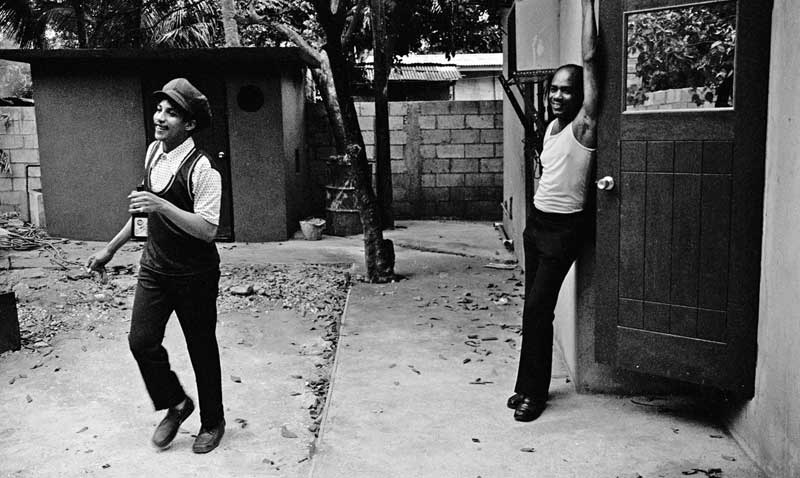
Augustus Pablo also continued recording for other producers, among which Lee Perry, Gussie Clark and Bunny Lee. He also helped Leonard Chin (Clive’s uncle) to launch his label, called Santic, which in turn provided Pablo with the opportunity to have a go at production. His debut was with Paul Whiteman/Blackman’s single “Say So”.
After 1972, Augustus Pablo formed different labels, including Hot Stuff, Message and Rockers. The latter was set up with his brother Garth and named after the sound system they had launched years earlier (Rockers Hi-Fi). Many of Pablo’s initial singles for his own label were instrumental versions of Studio One classics. The Original Rockers compilation by British label Greensleeves features many of the best self-productions from these early days.
Despite his success with his labels, Augustus Pablo continued producing some amazing albums with others, including This Is Augustus Pablo (1974) with Clive and Pat Chin, and Ital Dub (1975) with legendary reggae engineer King Tubby. These were masterpieces of mood and atmosphere, and the latter album is considered as one of the most innovative of the decade.
Augustus Pablo became a much sought-after producer after 1975, when he worked on the smash hit “Black Star Liner” by Fred Locks. Horace Andy, Jacob Miller, Dillinger and Earl Sixteen are among the many artists he collaborated with. Pablo was the protagonist of a series of critically acclaimed LPs including King Tubby Meets Rockers Uptown (1976), East of the River Nile (1978) recorded at Lee Perry’s Black Ark studio, Original Rockers (1979), Rockers Meets King Tubby in a Firehouse (1980) and Africa Must Be Free with Hugh Mundell (1983). Augustus Pablo was equally in demand as a session player and he appears on many albums from this period, playing keyboard, melodica, or both.
Pablo’s career began to slow in the 1980s, although he released the popular Rising Sun (1986) and produced memorable hits like “Ragamuffin Year” (Junior Delgado) and “Far Far Away” (Ricky Grant). Following extensive tours around the world, in 1987 he recorded a memorable live album in Tokyo. Some of his successful albums towards the end of his career include Rockers Come East (1987) and Blowing With the Wind (1990).
Throughout the 1990s, Augustus Pablo continued to release his own music, to guest-star on other’s records and to produce some classics like Dawn Penn’s “Night and Day” and Yami Bolo’s “Jah Made Them All” album. Unfortunately, his health had always been very delicate due to myasthenia gravis, a nerve disorder he suffered for much of his life and which led to his early death in 1999, when he was 45. Hundreds of Jamaica’s greatest musicians, singers and DJs appeared at the tribute concert held a year after his death, to pay homage to the unfading legacy of one of dub’s founding fathers
Source: Biography by Jo-Ann Greene on allmusic.com
Records by Augustus Pablo
-
 Roman Stewart – Casanova / Augustus Pablo Rockers All Stars – Casanova Ride13,00€
Roman Stewart – Casanova / Augustus Pablo Rockers All Stars – Casanova Ride13,00€ -
 Augustus Pablo – Moods Of Pablo19,00€
Augustus Pablo – Moods Of Pablo19,00€ -
 Augustus Pablo – Rockers at King Tubbys18,00€
Augustus Pablo – Rockers at King Tubbys18,00€ -
 Dennis Brown, Augustus Pablo – Spirit Of Umoja / Version12,00€
Dennis Brown, Augustus Pablo – Spirit Of Umoja / Version12,00€ -
 Junior Delgado – Away With Your Fussing And Fighting / Augustus Pablo – King David’s Melody (Limited edition)15,00€
Junior Delgado – Away With Your Fussing And Fighting / Augustus Pablo – King David’s Melody (Limited edition)15,00€ -
 Augustus Pablo – Rockers Comes East23,00€
Augustus Pablo – Rockers Comes East23,00€ -
 Augustus Pablo – Dubbing with the Don23,00€
Augustus Pablo – Dubbing with the Don23,00€

